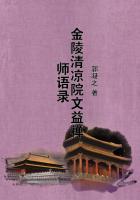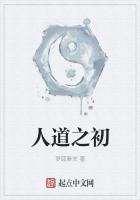29 Well, then, what if we tried to rise above the idea of class to the idea of the whole community, the State, and to find our centre of light and authority there? Everyone of us has the idea of country, as a sentiment; hardly anyone of us has the idea of the State, as a working power. And why? Because we habitually live in our ordinary selves, which do not carry us beyond the ideas and wishes of the class to which we happen to belong. And we are all afraid of giving to the State too much power, because we only conceive of the State as something equivalent to the class in occupation of the executive government, and are afraid of that class abusing power to its own purposes. If we strengthen the State with the aristocratic class in occupation of the executive government, we imagine we are delivering ourselves up captive to the ideas and wishes of our fierce aristocratical baronet; if with the middle class in occupation of the executive government, to those of our truculent middle-class Dissenting minister; if with the working class, to those of its notorious tribune, Mr. Bradlaugh. And with much justice; owing to the exaggerated notion which we English, as I have said, entertain of the right and blessedness of the mere doing as one likes, of the affirming oneself, and oneself just as it is. People of the aristocratic class want to affirm their ordinary selves, their likings and dislikings; people of the middle class the same, people of the working class the same. By our every-day selves, however, we are separate, personal, at war; we are only safe from one another's tyranny when no one has any power; and this safety, in its turn, cannot save us from anarchy. And when, therefore, anarchy presents itself as a danger to us, we know not where to turn.
30 But by our best self we are united, impersonal, at harmony. We are in no peril from giving authority to this, because it is the truest friend we all of us can have; and when anarchy is a danger to us, to this authority we may turn with sure trust. Well, and this is the very self which culture, or the study of perfection, seeks to develop in us; at the expense of our old untransformed self, taking pleasure only in doing what it likes or is used to do, and exposing us to the risk of clashing with everyone else who is doing the same! So that our poor culture, which is flouted as so unpractical, leads us to the very ideas capable of meeting the great want of our present embarrassed times! We want an authority, and we find nothing but jealous classes, checks, and a deadlock;culture suggests the idea of the State . We find no basis for a firm State-power in our ordinary selves; culture suggests one to us in our best self .
31 It cannot but acutely try a tender conscience to be accused, in a practical country like ours, of keeping aloof from the work and hope of a multitude of earnest-hearted men, and of merely toying with poetry and aesthetics. So it is with no little sense of relief that I find myself thus in the position of one who makes a contribution in aid of the practical necessities of our times. The great thing, it will be observed, is to find our best self, and to seek to affirm nothing but that; not,--as we English with our over-value for merely being free and busy have been so accustomed to do,--resting satisfied with a self which comes uppermost long before our best self, and affirming that with blind energy. In short,--to go back yet once more to Bishop Wilson,--of these two excellent rules of Bishop Wilson's for a man's guidance: 'Firstly, never go against the best light you have; secondly, take care that your light be not darkness,' we English have followed with praiseworthy zeal the fist rule, but we have not given so much heed to the second. We have gone manfully according to the best light we have; but we have not taken enough care that this should be really the best light possible for us, that it should not be darkness. And, our honesty being very great, conscience has whispered to us that the light we were following, our ordinary self, was, indeed, perhaps, only an inferior self, only darkness; and that it would not do to impose this seriously on all the world.
32 But our best self inspires faith, and is capable of affording a serious principle of authority. For example. We are on our way to what the late Duke of Wellington, with his strong sagacity, foresaw and admirably described as a revolution by due course of law.' This is undoubtedly,--if we are still to live and grow, and this famous nation is not to stagnate and dwindle away on the one hand, or, on the other, to perish miserably in mere anarchy and confusions,--what we are on the way to. Great changes there must be, for a revolution cannot accomplish itself without great changes; yet order there must be, for without order a revolution cannot accomplish itself by due course of law. So whatever brings risk of tumult and disorder, multitudinous processions in the streets of our crowded towns, multitudinous meetings in their public places and parks,--demonstrations perfectly unnecessary in the present course of our affairs,--our best self, or right reason, plainly enjoins us to set our faces against. It enjoins us to encourage and uphold the occupants of the executive power, whoever they may be, in firmly prohibiting them. But it does this clearly and resolutely, and is thus a real principle of authority, because it does it with a free conscience; because in thus provisionally strengthening the executive power, it knows that it is not doing this merely to enable our aristocratical baronet to affirm himself as against our working men's tribune, or our middle-class Dissenter to affirm himself as against both. It knows that it is establishing the State, or organ of our collective best self, of our national right reason. And it has the testimony of conscience that it is stablishing the State on behalf of whatever great changes are needed, just as much as on behalf of order; stablishing it to deal just as stringently, when the time comes, with our baronet's aristocratical prejudices, or with the fanaticism of our middle-class Dissenter, as it deals with Mr. Bradlaugh's street-processions. UTEL: Culture and Anarchy CHAPTER III.















